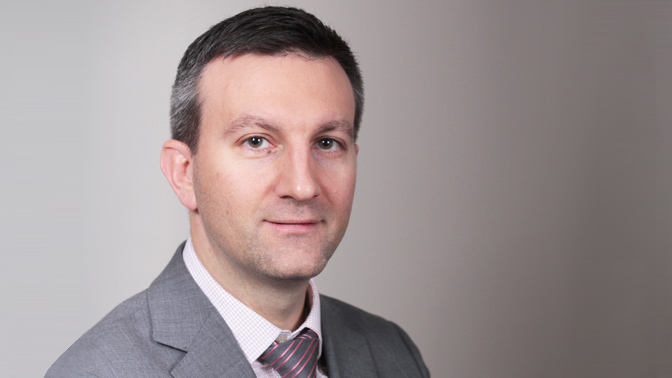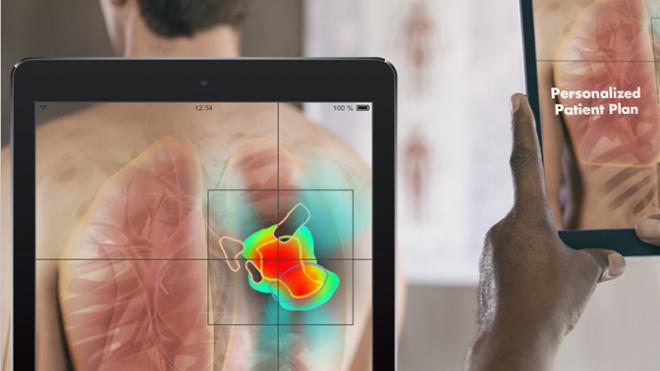
Radiation therapy is simple in its concept: high-energy radiation can damage and destroy cells, so beams of radiation are directed at a tumour to kill cancer cells. However, the treatment must also carefully minimize the dose to nearby organs.
Actually creating a plan that balances these conflicting requirements can be incredibly complex—it requires dedicated time from a team of highly trained experts. Each patient’s anatomy and tumour shape are unique, and it takes a lot of clinical resources and expertise to create a high-quality plan.
That may not be the case for much longer. Dr. Thomas Purdie and his team, including Dr. Chris McIntosh, have used the power of artificial intelligence (A.I.) to develop a new system that can create a high-quality plan in minutes—faster than current approaches, which can take days.
The technology, known as AutoPlanning, uses machine learning to harvest information from a massive database of proven radiation therapy plans from Princess Margaret Cancer Centre. While no two patients are identical, there can be similarities. The AutoPlanning A.I. can evaluate many features in a patient’s images, and find other patients in the database with similar features. Then, it builds a radiation therapy plan for the new patient based on information in the plans of patients with similar features.
With thousands of high-quality plans to learn from, the system rapidly adapts and optimizes the plan to suit the new patient.
“The technology allows radiation medicine teams to take on more complex cases and provide precision medicine to more patients,” says Dr. Purdie.

The deep learning algorithms of the AutoPlanning system will be integrated into RaySearch’s RayStation treatment planning system next year.
Johan Löf, CEO of RaySearch, says, “This technology has the potential to make a huge contribution to patient care. I am delighted to be able to bring its benefits to centers around the world as part of the RayStation platform.”




